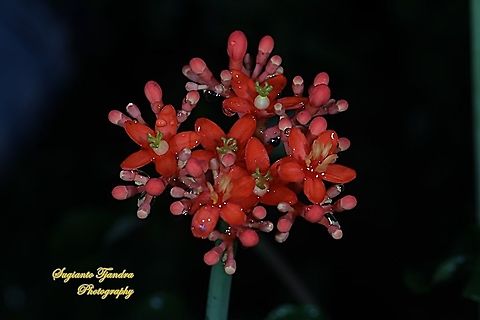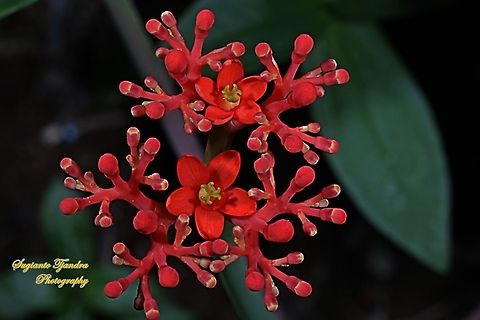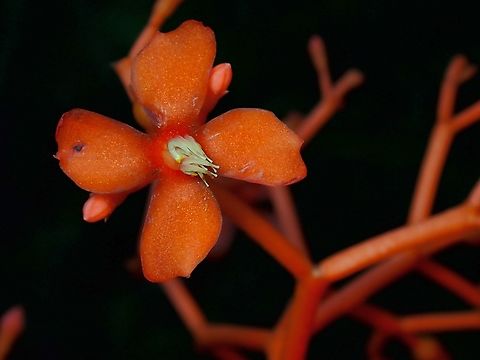
Appearance
"J. podagrica" is a caudiciform perennial herb growing up to 1 metre tall.The grey-green, knobby, swollen caudex has a bottle-like appearance, giving rise to some of the common names. Leaves are held on long fleshy yet stout petioles which emerge from the tip of the stem and radiate in all directions. Leaves are peltate and 3 or 5 lobed.
Dense clusters of small, orange-red, flowers are held above the leaves on long slim peduncles. The clusters carry both male and female flowers and flowering continues for most of the year. Fruit are green capsules at first, becoming blackish-brown at maturity, when they explode and scatter their seeds up to 4 metres away.
When cut, the plant exudes a copious sticky sap which may cause dermatitis on contact.

Naming
Common names include Gout Plant, Gout Stalk, Guatemalan Rhubarb, Coral Plant, Buddha Belly Plant, Purging-Nut, Physic Nut, Goutystalk Nettlespurge, Australian Bottle Plant, and Tartogo.
Defense
All parts of the plant are considered toxic, in particular the seeds. The main toxins are a purgative oil and a phytotoxin or toxalbumin similar to ricin in Ricinis.Uses
There are many uses of "J. podagrica" in folk medicine, including as an analgesic, tonic, aphrodisiac, purgative, laxative, and to treat infections, intestinal worms, snakebite, gout, and more. Other uses include tanning, dye making, soap making, biofuel, fish poison, lamp lighting, and fertiliser.Additionally, a number of research projects have sought to identify medicinally useful compounds from "J. podagrica".
References:
Some text fragments are auto parsed from Wikipedia.